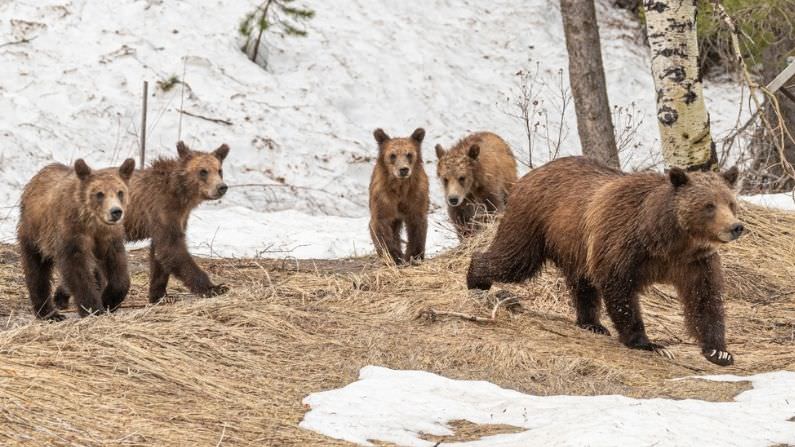Wyoming Game and Fish Department officials killed one of the young offspring of famed Grizzly 399 on Tuesday, July 12, the nonprofit publication WyoFile first reported last Thursday.
The decision to kill the sub-adult male was made in consultation with the U.S. Fish and Wildlife Service, according to Game and Fish Public Information Specialist Mark Gocke, who said the bear had gotten dangerously habituated to humans after receiving numerous food rewards in a developed area north of Pinedale.
“They just don’t unlearn that,” Gocke said. “They continue to seek out those easy meals, unfortunately, and tend to get bolder over time. And that’s when it becomes a human safety issue.”
399 is known for raising multiple litters not far from busy roadways in Grand Teton National Park over more than two decades. The four cubs from her latest litter branched out on their own earlier this year, and wildlife managers had expressed concerns about potential conflicts if the bears got access to unsecured food sources.
Gocke said euthanizing a bear is always a last resort but that officials didn’t believe relocation was an option for this grizzly—which was officially known as Grizzly 1057—because of its increasingly dangerous behavior. WyoFile reported that state wildlife managers had recorded 13 conflicts with the bear since May.
“The sub-adult grizzly was hanging out on porches of homes—even when they were occupied by people, during the day—and didn’t respond to hazing attempts,” Gocke said.
After news of the killing broke, the well-known grizzly advocate and wildlife photographer Tom Mangelsen told the Jackson Hole News&Guide that the young bear “shouldn’t be punished because it was around houses.”
No similar behavior has been observed among the three other offspring of 399’s most recent litter, Gocke said. But he also warned that bear activity will only increase between now and November, when bears tend to go into hibernation, and he urged both residents and visitors to secure attractants like garbage and livestock feed and maintain clean campsites in order to keep both bears and humans safe.






